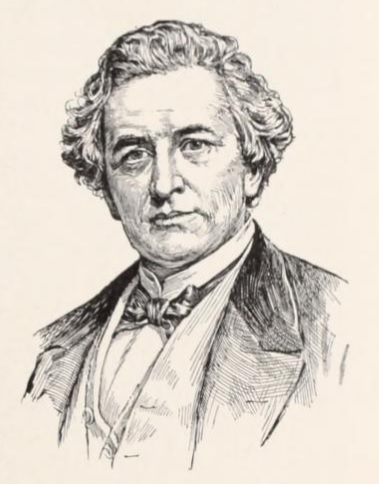1817-1894
John Jay II, grandson of Chief Justice John Jay and son of Judge William Jay, was born on June 23, 1817. He was educated first at the Muhlenberg Institute, and then at Columbia College. While at Columbia, he held the office of president of the New York Young Men’s Antislavery Society and was the author of many anti-slavery pamphlets.
Jay graduated from Columbia College in 1836, commenced his legal studies, and three years later was admitted to the bar. He set up practice in New York City and represented a number of fugitive slaves (Kirk and three Brazilians, for whom he won freedom, and Henry Long, who was returned to slavery in Virginia in 1851). In 1852, Jay was one of the lawyers who won the release of the Lemmon Slaves in New York City’s Superior Court. He again participated in the case when it reached the court of final appeal, the New York Court of Appeals. With a favorable result in the New York Supreme Court and doubtful prospects should the case be appealed to the Supreme Court of the United States, Jay appeared as amicus curiae, arguing that no bona fide case was before the Court, and that no decision should be made. He produced documentary evidence to prove that the slaves were in Canada and outside the jurisdiction of the Court, and that Mr. and Mrs. Lemmon’s receipt for monetary compensation for the loss of their slaves had ended their claim.
In 1847, during the Irish famine, John Jay was secretary of the Irish Relief Committee, and in 1855 when the Huguenot Society was organized, he served as its first president. John Jay was one of the early organizers of the Republican Party and was active in the campaign to have Saint Philip’s African-American church admitted to the Episcopal Convention. He was also active in such organizations as the New York Historical Society and the American Geographical and Statistical Society.
From 1869 to 1875, Jay was United States Minister to Austria-Hungary. He held many other public offices, including New York State Commissioner for Antietam Cemetery, chair of the Commission to Investigate the New York Custom House, and a member, and later president, of the New York State Civil Service Commission.
John Jay died on May 5, 1894.
Sources
Charles P. Daly. History of the Bench and Bar of New York.
Frank Moore Colby, Talcott Williams. The New International Encyclopaedia, Volume 12 (1922)
The Society. British and Foreign Anti-slavery Reporter (1860)
Society of Friends. Friends’ Intelligencer, Volume 51 (1894)

